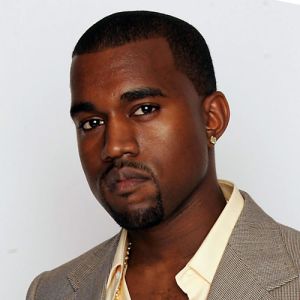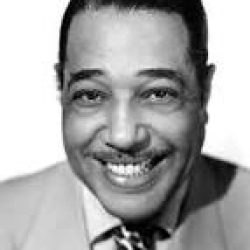
Kanye West
Kanye Omari West was born in Atlanta, Georgia, on June 8, 1977. He is rapper, singer, songwriter, record producer, fashion designer, and entrepreneur. He has 92 awards out of 380

The research method I’m using is investigation and scholarly reading skills. The data in my research is collected by taking trips to the library and sitting down reading. It is analyzed through the bullet points that I write, as I read. My thesis is included in the second paragraph of the Early Life Section in bold. I got my thesis from books that are cited at the bottom of this page.
Edward Kennedy “The Duke” Ellington was born on April 29, 1899 to James Edward and Daisy Ellington. His mother, born in 1879 came from a “good family” in black Washington, and his father whom served as butler to prominent Dr. Cuthbert, met in Washington and got married. James Edward played the piano by ear. The gift of playing by ear was passed down to his son. Duke’s parents believed that going to church and being involved in the music ministry and ministry overall was there duty to the Lord. Duke was extremely polite to others so he given the name Duke at a young age and it eventually became his stage name. It was at age seven when James Edward prompted him to learn to play the piano because he was always singing and interested in instruments. At the age of thirteen Duke traveled to New Jersey to find work away from his parents and washed dishes at a hotel. He hated washing the dishes but he loved the ragtime he was exposed to in New Jersey. Like his father, he could pick up tunes by ear but he could also read music by now so he started playing tunes for house parties, cafe’s and small dances. The first piece he wrote entitled Soda Fountain Rag was written in 1914 a year after he was introduced to ragtime. His parents supported him exploring his musical side but wanted to secure his future. They enrolled him into Samuel H. Armstrong Technical School to be an engineer. He became a prolific ragtime composer and used his platform to advance the colored people. He once took a trip to England and the British people saw him not only as a successful bandleader but also as a major American composer whose music went beyond just entertainment. Duke was always loyal to his music but never to his women. He married his first wife Edna in 1918 and left her ten years later in 1928 because the women were too much to handle.
During the 1930’s cake walking and coon songs were acceptable and black people were used solely for entertaining white America. Duke gathered a band of six and used his music to spread positivity through the chromaticism of jazz music. In 1933 in an interview he described his music as him “expressing in sound the old days in the jungle, the cruel journey across the sea and the despair of the landing, and then the days of slavery.” Jungle music is music that white people did not understand so they labeled it as such. There were other composers that would hear him playing at a venue and instantly book him for future events. These composers and directors recognized his talent and began paying him and his band for their compositions and performance. Duke Ellington is the Father of Jazz because of his contributions to big band swing music, theatre music and radio music.
Word painting through musical theatre cause Duke’s compositions for theatre to be unmatched. Atmosphere and emotional expression are two significant textures in a drama. For Ellington, creating an atmosphere of emotional expression through sound was the main goal in theatre susic. He looked at the theatre as a place of “endless variety where culture is defined, refined, and exchanged, through entertainment.” During the 1930’s it was very clear that most African-Americans were writing for the theatre and getting paid good money to do so. Ellington knew that he had to impact theatre music in some way. During this time, most African- American musicals were racially suggestive. Typically a show would be centered around a plantation scene, a camp meeting or church service, or a Harlem rent party. Duke had to write in the music for this scenery and during this Ragtime era, he produces cake songs for his own band. But, because of the nature of of theatre composition Duke’s compositions for the stage are a grey area for musicologist. When he would provide music it would the the accompaniment in lead sheet symbols.
On November 28, 1936 Duke Ellington spoke about his dream of having a musical with an “entire Negro cast.” In 1938 Duke had completed the score for a musical show which would be produced and directed by Eugene von Grona. In the play there is satire in swing and episodes of colored life in Harlem. This cast would include the American Negro Ballet and an all black chorus. But because Duke rarely followed through when it came to musicals, this show was never produced. Duke went on to write the score for a the production of Jump for Joy because he believe the negro was capable of matching whites in all realms of cultural production. His band was on the road for most of the creative process for this musical so he would play a tune over the phone and mail in lead sheets to the lyricist and that is how they would come up with the music for the show.
Duke Ellington performing Jazz as the Cotton Club bandleader impacted radio music in February of 1929 when his performances were broadcasted from coast to coast. He traveled from Washington to New York to perform as bandleader for the Cotton Club. Each of the thirty minute broadcast allowed the American people to listen to eight songs of jazz while they waited for their husbands to return from the war. He had been broadcasting locally since 1923 but when he began to be exposed to upper echelon audiences he was aired across the country. An American radio scholar said that these Cotton Club performances were “the first important national propagation of black music by a pop group” and “the first encounters most white Americans had with black music.” To make a profound statement such as that shows that his music style was distinct and loved. The broadcasters would announce his music as “Jungle Style” music and this can be offensive to a middle class black, like Duke’s mother but he did not take offense to this term. He embraced the phrase jungle music and even wrote some songs with the words in it. He appreciated his African roots. He most importantly appreciated the exposure he got from the radio broadcast. He became a household name very quickly. His television appearances on shows such as The Ed Sullivan Show kept him famous long after big-band jazz became unfashionable.
In 1932 Ellington wrote It Don’t Mean a Thing If It Ain’t Got That Swing but he never considered himself as a swing composer. Him never admitting to be a swing composer because swing was like the “monotonous rhythmical bouncing of a ball. After you hear to much you get sick of it.” He hired Ivie Anderson to sing to solo on his composition and it blew up on radios around the world. But the renowned Ella Fitzgerald was ask to sing the song and she changed the game. She made the song because of her soulful voice. The song is recognizable by swinging piano melody and big, strong brass section. It begings with a violin solo setting the key with chromatic chords. The horns in this band play the lyrics of the song “it don’t mean a thing if it ain’t got that swing, doo-ahh, doo-ahh, doo-ahh, doo-ahh.” There is a call and response between the soloist and the band. Duke and his band compositions of the 1940s and 1930s made him the competition.
Duke Ellington merged swing, ragtime and jazz into his music during his time alive. His early life consisted of ragtime and his later years consisted of jazz. He wanted to spread positivity through music each time he performed any instrument. In 1960 Duke was awarded the NAACP’s Spingarn Medal which is the highest achievement by an American Negro at the time. His noble accomplishments set him aside from other composers. He was raised with respect and honor and that followed him throughout his days. On May 23, 1967 Duke Ellington caught pneumonia and died the next day. His legacy was never tarnished because he was a man of character. He never had a down period because his talent and ability to network always kept him up. He was never without a job because he was the greatest composer in the history of jazz and one of the greatest composers in the history of American music.

Kanye Omari West was born in Atlanta, Georgia, on June 8, 1977. He is rapper, singer, songwriter, record producer, fashion designer, and entrepreneur. He has 92 awards out of 380

Login to your account